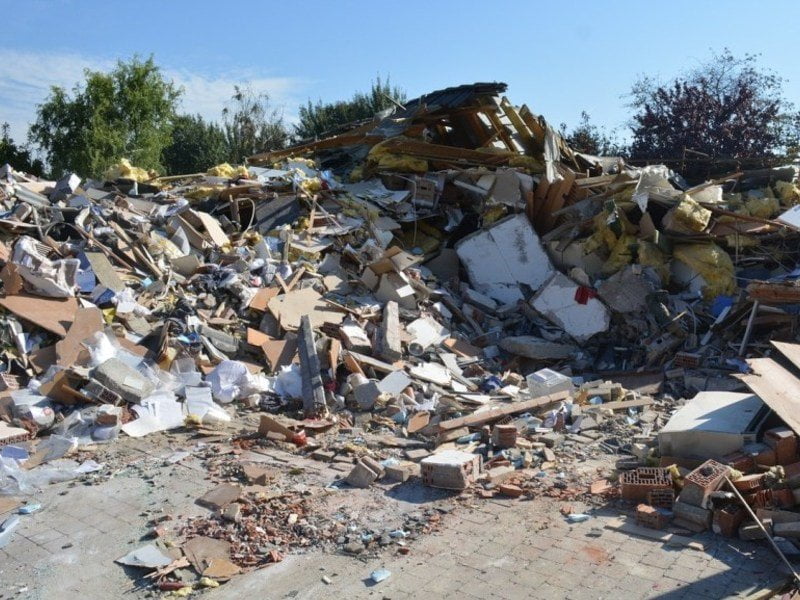Reinier advises national and international companies
reinier.russell@russell.nl +31 20 301 55 55Shop premises collapsed in Den Bosch in February, possibly as consequence of the activities of a contractor the lessee (Pearle) had brought in. Who has to repair the damage, the lessor or the lessee?

If the damage has to be repaired by the lessor or the lessee is governed by the regulation on defects, one of the core values of rent protection. A defect must be repaired by the lessor if:
Defects may be, for instance, a leaking roof, a defective boiler or long-term difficult access.
If there is a defect as referred to in the regulation on defects, the lessee must notify the lessor and demand from the lessor to repair it within a reasonable period of time. If the lessor does not comply with this request, the lessee is allowed to repair the defect himself, for instance, by bringing in a contractor and setting off the reasonable repair costs against the lease. The lessee can also claim that the lease will be reduced and – if the lessor is liable for the defect – that his damage will be compensated by the lessor.
The regulation on defects does not apply if the defect was caused by the lessee or on his behalf. In the event, for instance, a water pipe bursts due to freezing. The lessee is namely obliged to prevent the freezing of water pipes. If the lessee does not fulfil this obligation, he will be liable for the damage and the lessor can demand from the lessee to repair the defect.
For residential property the regulation on defects is mandatory law, this means the lessor and lessee cannot deviate from it. As regards other premises, such as shops and offices, the parties can agree in the lease agreement that certain defects do not fall under the regulation on defects.
If the leased property collapses or is (mostly) destroyed by fire, the lessee will no longer have quiet enjoyment. If repair of the defect is impossible or requires unreasonable expenses of the lessor, both parties can terminate the lease prematurely.
However, the option to terminate the lease prematurely does not exist, if the lessee or a party he brought in is responsible for the destruction of the leased property. If the contractor of the lessee Pearle in Den Bosch is responsible for the collapse of the premises – which has not (yet) been established – the lease cannot just be terminated and, in addition, Pearle will be liable for the damage to the lessor, including the foregone rent. This is likely going to be an insurance matter in which (the insurance of) Pearle will be able to recover the damage from (the insurance of) the contractor. It will be even more complicated if it turns out that the contractor was brought in by Pearle to repair an existing defect.
If the leased property is defective and the lessor does not provide the expected quiet enjoyment (any longer), the lessee may demand remedy and potentially claim compensation and/or rent reduction. That does not hold true if the defects can be attributed to the lessee. In this case it is the lessee who is liable to the lessor.
Do you have any questions on leasing or letting industrial premises or any other questions regarding real estate? The specialists at Russell Advocaten will be happy to assist you. Please contact us:
As of 1 January 2026, the Money Laundering and Terrorist Financing (Prevention) Act (Wwft) will change. Cash payments of EUR 3,000 or more will then be prohibited. What does this mean for the retail sector and the art trade?
A franchise agreement is often linked to an agreement for the lease of business premises. What happens if the franchisor and franchisee have a conflict? Does the lease agreement remain in force if there are problems with the franchise?
Almost all companies now use some form of AI. This means that they may be subject to the prohibitions and regulations set out in the European AI Act. How can you ensure that you comply with these rules?
Special rules may apply to the termination of a lease of business premises, depending on the nature of the business. What rules apply to termination? How do these relate to the statutory lease terms? Are you entitled to compensation if the landlord terminates the lease? What are your rights as a subtenant?
Employees who consume alcohol and drugs during work or who want to work under the influence remain a problem for employers. What measures can you take against this? Are you allowed to test an employee if you suspect they are under the influence?
What should you bear in mind if you want to change the rent for your business premises? When are you allowed to adjust the price yourself? And in which cases do you have to go to court?